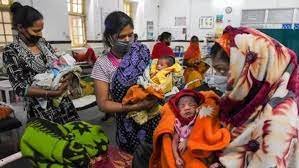New Delhi- The Government of India has underlined the success of its national child health initiative, Rashtriya Bal Swasthya Karyakram (RBSK), in a written statement presented by Union Minister of State for Health and Family Welfare, Smt. Anupriya Patel, during the Rajya Sabha proceedings.
RBSK is a community-based program that aims to enhance the quality of life for children by providing free and comprehensive health screening and care. The scheme covers children from birth up to 18 years of age and focuses on the early identification and management of four major types of health issues, commonly known as the 4Ds. These include Defects at birth, Diseases, Deficiencies, and Developmental Delays. The program screens for 32 common health conditions and ensures early detection, timely treatment, and necessary surgeries through tertiary-level healthcare systems.
Children found with health conditions during screenings are provided free treatment along with early intervention and continuous follow-up care at the district level to prevent long-term complications.
In parallel with this initiative, the country has witnessed a significant improvement in child survival outcomes, especially in rural areas. As per the Sample Registration System (SRS) report released by the Registrar General of India, the Under-5 Mortality Rate (U5MR) in rural regions has seen a substantial decline—from 51 deaths per 1,000 live births in 2014 to 34 per 1,000 live births in 2022. This notable reduction reflects the impact of targeted healthcare efforts, particularly in areas with limited access to medical infrastructure.
The government’s emphasis on early health screening, timely medical support, and sustained care under RBSK is proving to be a transformative step toward improving child health across the country.



